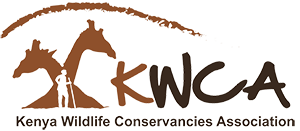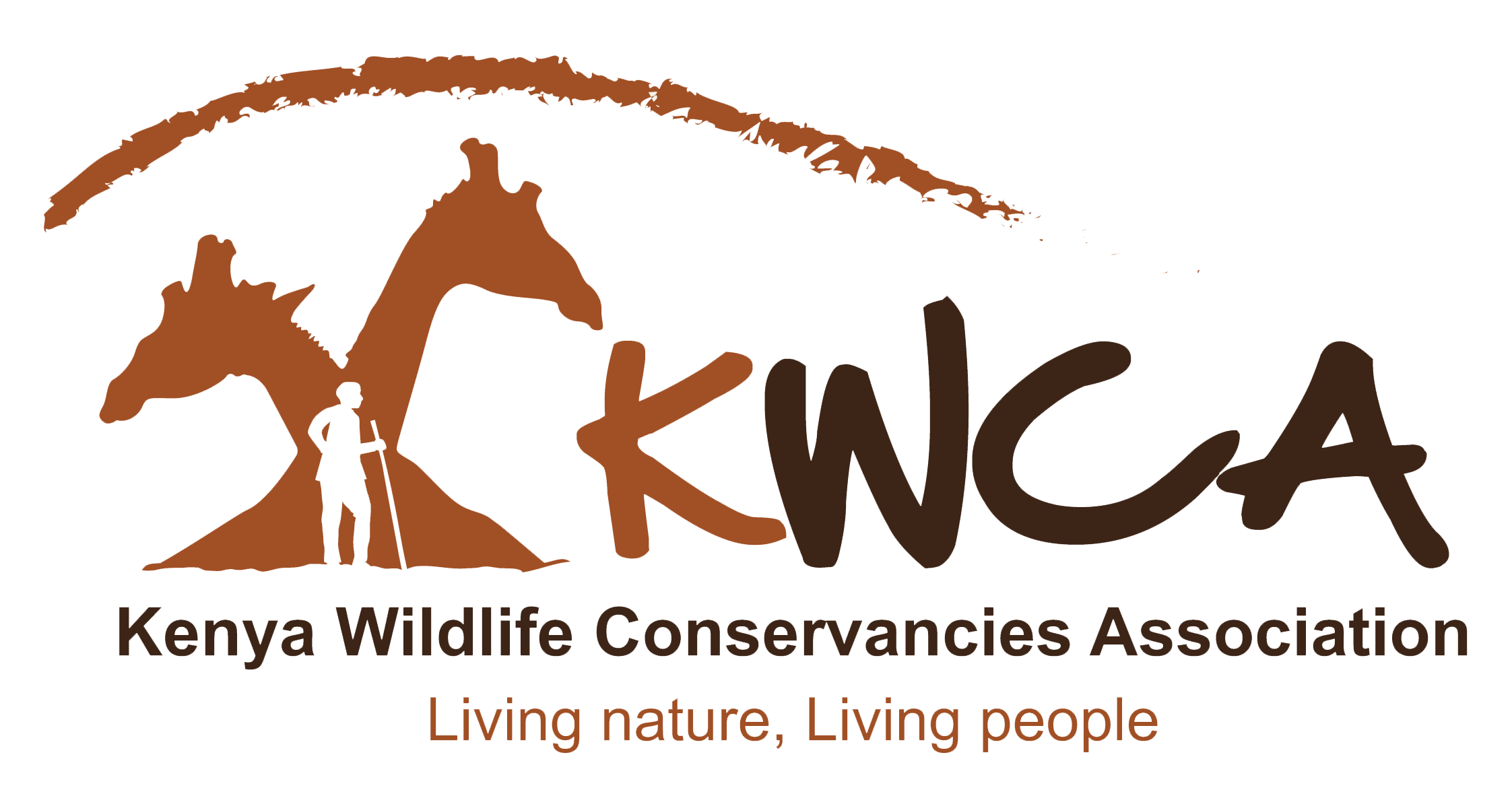Introduction
In Kenya, climate change threatens the environment and communities in and around conservancies, with drought, resource use conflicts, degradation, and extreme weather patterns disproportionately affecting the most vulnerable – especially women. Social and cultural norms around the roles of women and girls in these communities exacerbate gender-based violence, which increases their vulnerability to the negative impacts of climate change. This gender-based violence manifests as physical and psychological abuse, and intimidation, ultimately resulting in the exclusion of women in decision-making spaces both in governance and management and access to conservancies benefits.
KWCA is the national representative body for community and private wildlife conservancies in Kenya. As an umbrella body, KWCA’s role is to help catalyse the conservancy movement by connecting, informing, convening and representing private and community landowners and other key stakeholders in a shared effort to make wildlife conservancies thrive in Kenya. KWCA supports these conservancies through landscape associations as umbrella organisations at an landscape level through which conservancies can have a voice, collaborate, share insights and best practices, integrate development planning and manage conservancies at a large scale.
About the RISE Program
The Resilient, Inclusive and Sustainable Environments (RISE) program seeks to address gender-based violence (GBV) in environment contexts and climate-related sectors. Funded by the United States Agency for International Development (USAID), RISE directly responds to key research findings by the International Union for Conservation of Nature (IUCN) on gender-based violence and environment linkages.
KWCA is continuing work through a second RISE grant in partnership with two of its landscape associations: Taita Taveta Wildlife Conservancies Association (TTWCA) and Amboseli Ecosystem Trust (AET) on preventing gender-based violence and promoting gender equity in Kasigau and Kitirua Conservancies in the Taita Taveta and Amboseli landscape respectively. Further, institutionalizing gender and gender-based violence safeguarding policies, addressing harmful social norms, engaging men and boys, and promoting women’s autonomy and independence, partners aim to end a culture of ‘can’t’ towards a culture of ‘can’ by strengthening women’s agency to meaningfully and safely participate in conservancies. A key strategy in the project focuses on exploring and challenging negative social norms that perpetuate GBV through CARE’s Social Analysis and Action (SAA) approach. This is coupled with women’s economic empowerment and capacity building to enable women to build their voice and agency with prior knowledge that combining reflective dialogue with economic empowerment activities can support women to advocate for and influence policy positions and practices that adversely affect women.
Project Expected Outcomes
- Increased knowledge and action by women and men within conservancy communities to adopt and maintain positive changes in gender relations, including GBV and the access and control of natural resources and conservancy benefits.
- Integration of gender and GBV prevention into TTWCA and AET’s organizational policies and programming increased.
- Increased skills and capacity for women to advance their rights and contribute to conservancy management
Project Beneficiaries and Scope
The project directly benefits 294 women and 228 men; and indirectly benefit 800 TTWCA and AET Conservancies members and 60 Landscape level Gender sector -Technical working group members.
Objective and Scope
The purpose of the evaluation will be to understand how and to what extent project activities and approaches achieved the stipulated outcomes including the contribution of the project toward the overall goal. The findings of the evaluation will also contribute to learning the best practices in advancing equitable gender, social and power norms in community conservancies in Kenya.
The consultant (s) are expected to:
- To evaluate the project against the effectiveness, relevance, efficiency, sustainability and impact criteria, as well as the cross-cutting gender equality criteria (defined below);
- To identify and document key lessons and emerging good practices for learning purposes (this is defined under the knowledge generation criteria below).
- Provide actionable recommendation to inform future program design and adaptive management for similar projects in this context
- Examine critical factors that enabled or hindered the effective achievement of intended results
Assessment Criteria
The assessment criteria will be drawn from the performance framework and KPIs.
The evaluator is expected to frame the evaluation effort using the criteria of impact/results, relevance, effectiveness, sustainability, knowledge generation as explained below. Consider Adaptive management too as a criterion.
- Effectiveness: Is the intervention achieving its objectives?
- To what extent were the intended project goal, outcomes and outputs (project results) achieved?
- What are the contributions made by each of the approaches such as SAA employed for the realization of the overarching outcomes of the project?
- To what extent is the core approach an effective mechanism towards promoting gender equity and preventing GBV? What can be strengthened moving forward?
- Reflect on the monitoring and learning process used throughout the project
- Relevance: Is the intervention doing the right things?
- To what extent is the theory of change, still relevant considering the diversity of the different contexts?
- How does the program and partnership with CARE, CREAW and FFI support advancement of KWCA, landscape associations and conservancies on gender?
- What are the changes in the external and internal environment during the implementation of the project and how have these changes positively or negatively affected the project?
- How did the project adapt to the context in the course of implementation?
- Impact: What difference has the intervention made?
- What real difference/changes has the project made to the lives of the target groups?
- Sustainability
- To what extent is the project contributing or enhancing sustainability of landscape associations and conservancies and what are some best practices to scale-up moving forward?
- Knowledge generation
- Describe the main lessons and promising practices that have emerged?
- What are the recommendations for similar support in future (Nb. The recommendations should provide comprehensive proposals for future interventions based on the current evaluation findings).
Approach and Methodology
The consultant is expected to develop a robust methodology that meets the project objectives and outcome results as explained above. At minimum, the consultant shall be expected to review and adopt an inclusive and participatory approach, involving all the partners and stakeholders in the project at the national, landscape and conservancy level. During the inception stage, the consultants will conduct a comprehensive desk review to define the evaluation design, including data collection and analysis methods and required tools in consultation with the Project Steering Group (PSG) to understand and document changes in individuals’ experiences, perceptions, and actions. The SAA tools drawn in particular from CARE’s Social Action and Analysis gender toolkit including Vignettes and Social Norms Analysis Plot Framework should be adapted to assess personal transformation. The specific tools used will be reviewed by the Project Steering Group (PSG) to consider changes/ shifts in knowledge, attitudes, skills, and behaviors over time and using semi-structured interviews to assess gender equality, women’s empowerment, and GBV.
Assessment timeframe
The total duration of the Assessment will be 30 consultancy days in the month of November 202.4
Deliverables
The team is expected to deliver the following deliverables;
- An Inception Report that details the evaluators’ interpretation of the TORs, proposed schedule of tasks, detailing, the evaluation methodology, and a set of evaluation tools and clarity on adaptation of social and power norms measuring/ evaluation tools.
- A draft Evaluation Report on key findings and recommendations to be submitted to KWCA no later than 2 weeks after completion of the field mission.
- A Final Evaluation Report. The report should expound on the key findings, lessons learnt, and recommendations
Required Qualifications
The consultant shall have prior experience in assessing and evaluating similar projects. The consultant selected should not have participated in the project preparation and/or implementation and should not have conflict of interest with project related activities.
The consultant must present the following qualifications:
- Knowledge and experience of gender focused projects and gender transformative approaches
- Experience in evaluation of social norms, power relation and related changes.
- Minimum 7 years of relevant professional experience in a relevant field
- Previous experience with results‐based monitoring, assessment and evaluation methodologies
- Demonstrated experience in participatory approaches
- Experience of working with community conservancies will be an added advantage
Submission of proposal
The proposal should demonstrate sound knowledge, technical skills and capacity as required by the nature of work of the assignment and understanding of the requisite tasks set forth in the scope of work.
Eligible consultants should submit the following;
- A detailed technical proposal clearly demonstrating understanding of this ToR and including but not limited to the following:
- Proposed methodology and a proposed work plan.
- Demonstrated previous experience in similar assignments and qualifications outlined in this ToR (with submission of the most recent report)
- Team composition include CVs of each team member.
- A financial proposal.
The proposals should be submitted to [email protected] indicating clearly on the email header the title of the consultancy by Tuesday 12th November 2024
Posted on
